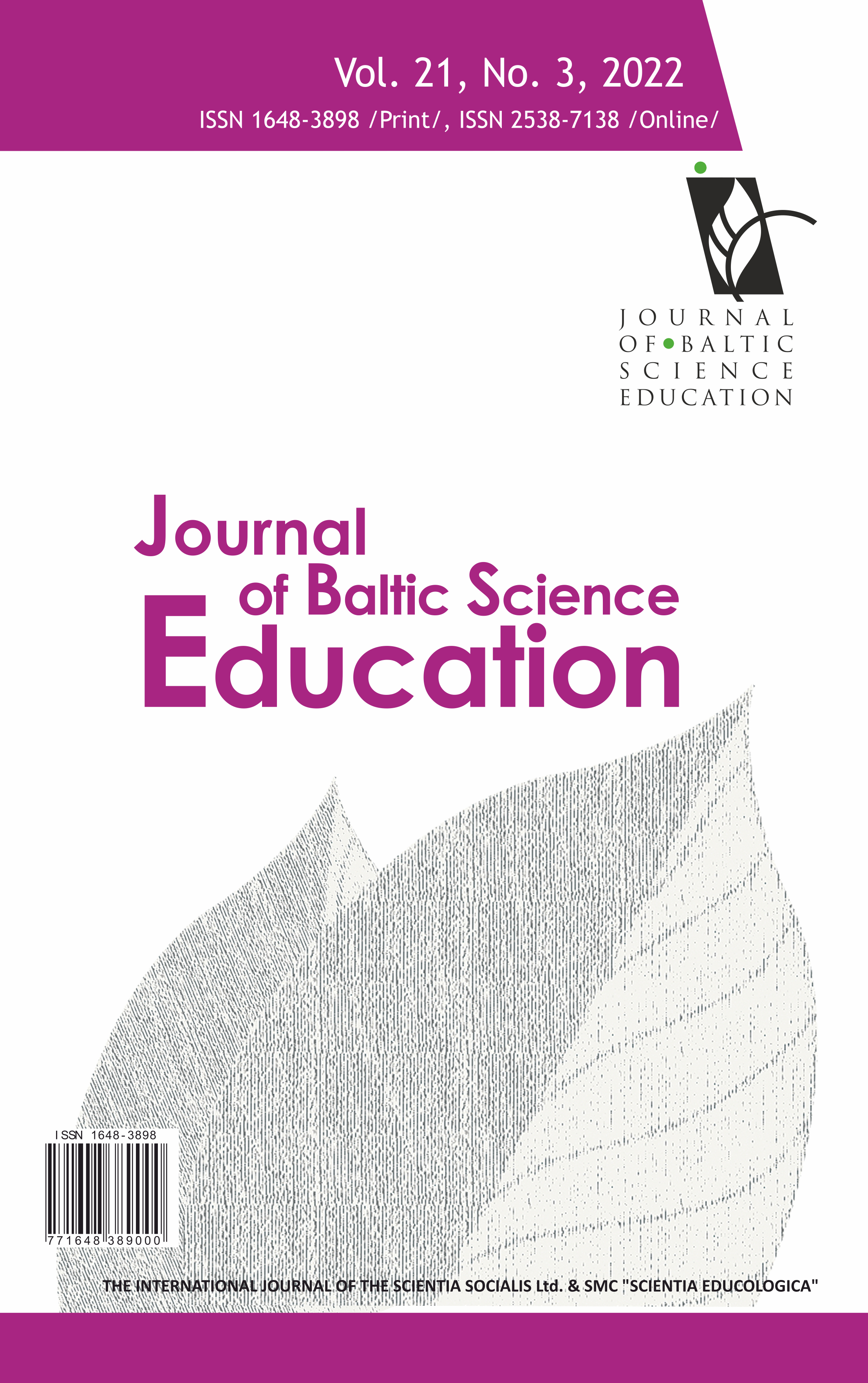A TOOL OF TECHNOLOGY-BASED LABORATORY ENABLED STUDENTS TO PRECISELY DESCRIBE SCIENTIFIC PHENOMENA
A TOOL OF TECHNOLOGY-BASED LABORATORY ENABLED STUDENTS TO PRECISELY DESCRIBE SCIENTIFIC PHENOMENA
Author(s): Chia-Yu Liu, Chao-Jung Wu, Guo-Li Chiou, Wing-Kwong WongSubject(s): Education, School education, Pedagogy
Published by: Scientia Socialis, UAB
Keywords: mathematical modelling; model-building behaviours; modelling activities; physics teaching/learning strategies; technology-based laboratory;
Summary/Abstract: Proposing scientific descriptions is critical for individuals to cope with daily problems and acquire essential information. Nonetheless, few classes have enhanced students’ ability to describe facts of scientific phenomena. Thus, using a tool of technology-based laboratory, this research examined whether students’ scientific descriptions and mathematical modelling behaviours could be improved. The participants included 52 undergraduate students randomly assigned to the experimental and control group. Two prompts were developed to remind the experimental group that it is common to place ‘time’ along the x-axis and that mathematical modelling is important in physics. Results showed that as expected, all participants generated more propositions in scientific descriptions, especially the experimental group. However, contrary to the hypothesis, the participants did not propose more correct propositions and the effect of group was limited. Moreover, the hypotheses were partially supported that the participants used more image-based and mathematics-based representations to describe phenomena, and the proportion of participants whose propositional type was quantitatively increased, though no main effects of group were observed. Most participants adjusted their mathematical models by keeping slightly changing the coefficients/constants to fit the data, rather than applying relevant physics knowledge to revise models, illustrating their difficulties in connecting mathematical representations with actual phenomena.
Journal: Journal of Baltic Science Education
- Issue Year: 21/2022
- Issue No: 3
- Page Range: 495-512
- Page Count: 18
- Language: English

